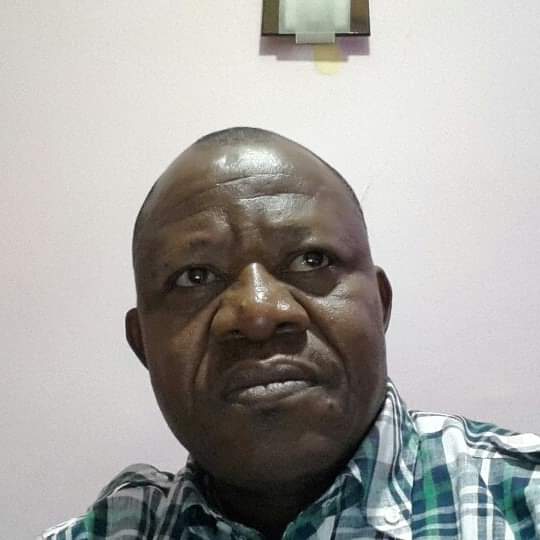I watched with interest the shenanigans of our senators when the vote to amend the electoral law so as to enable the electronic transmission of votes took place in the Senate. I was particularly interested in how the senators from my two states would vote. I hail from Abia and live in Lagos.
Abia is “God’s Own State”, but only Senator Enyinnaya Abaribe voted like “God’s own senator”. He said “yes” to electronic transmission of votes to cut off the electoral thieves and give the power to choose leaders back to the people. Abaribe of Abia South is the shining light of Igbo politics. Orji Uzor Kalu is the direct opposite of Abaribe.
Unfortunately, he represents my home Senatorial District, Abia North. He is an expert at springing “surprises”. In 1999 he surprisingly emerged as the Governor of Abia State, and in 2019 he surprisingly became an elected senator.
Then, he went to prison for corruption but obtained a court judgment which enabled him to return to the Senate and reoccupy his seat as the Chief Whip.
The third senator – Theodore Ahamefule Orji – is always the man in the middle: neither black nor white. Though a good man up close, “Ochendo Global” is not remarkable for much. On that day of voting, he acted true to type: absent. The body language of that absenteeism means: “I am okay. If you want to rig, I am ready; if you want it free and fair, I am equally ready”.
In Lagos where I live, all the three senators – Solomon Adeola, Tokunbo Abiru, and Oluremi Tinubu – voted against electronic transmission. Now, the Northerners who voted in this direction claimed that terrorism and backwardness make it impossible for results to be transmitted electronically from their areas. “Backwardness”, “poverty” and “disadvantage” of the North have for ages been used by Northern politicians to ensure that Nigeria never made progress. These have long been weaponised for corrupt, selfish gain.
Let us, for the sake of argument, concede that there are isolated cases of disruption caused by Boko Haram terrorism in the North East whereby power supply and communication infrastructure have been targeted. Mind you, this has never hampered INEC’s ability to conduct elections.
What reason can Orji Kalu and the three Lagos senators proffer in their opposition of electronic transmission of results? Lagos, in particular, is the showpiece state in Nigeria. It was the capital of the country for 76 years.
It cannot claim disadvantage of any sort. Lagos cannot plead poverty, being the richest state. It cannot plead backwardness being the most developed state. The only ground on which Orji Kalu, the three Lagos senators and the rest of the 52 senators voted against electronic transmission is that they and their godfathers want to continue “winning” elections in the ways they know best.
If electronic transmission is allowed, Ahmed Tinubu’s army of supporters will lose relevance. These were the people dispatched to violently disrupt elections in areas where Igbo voters were dominant in order to ensure victory for Muhammadu Buhari in the 2019 presidential election.
Tinubu has dominated Lagos politics through rough arm tactics for 22 years. He hopes to benefit from electoral malfeasance if he becomes the APC’s presidential candidate. Blocking electronic transmission is an attempt by the ruling All Progressives Congress, APC, to continue to foist themselves on the people in 2023 after announcing the registration of phantom 40 million members in their recent membership registration exercise.
What Ahmed Lawan’s Senate and Femi Gbajabiamila’s House of Representatives want is a situation whereby the Nigerian Telecommunications Commission, NCC, and the National Assembly will share the Independent National Electoral Commission, INEC’s power to conduct elections, contrary to the constitution. The NCC, which is under the shadow of self-acclaimed repentant Jihadist sympathiser, Ali Pantami, can declare any part of the country as unsuitable for electronic transmission of votes so that manipulations can take place. Between the NCC and the Ahmed Lawan’s National Assembly, INEC will be instructed of the areas to transmit electronically or not, to ensure that their party and preferred candidates are returned to continue what we have been through in the past six years.
If these politicians succeed in frustrating the electronic transmission of votes, the general elections of 2023 have already been fore-rigged. I have no doubt that once this Bill lands in Buhari’s table, it will receive the most accelerated assent ever seen. This, and things that have to do with grabbing people’s land to gratify Fulani herders, are the types of stuff where Buhari shows he is not “Baba Go-Slow” in everything. This is a president who vetoed the Electoral Bill 2018 a record four times with flimsy excuses to pave the way for his “victory” in 2019.
If that law comes out, I will expect the Independent National Electoral Commission, INEC, under the leadership of Prof. Mahmood Yakubu not to honour it. That law will be unconstitutional.
The INEC is the authority constitutionally saddled with the exclusive mandate to conduct elections in Nigeria. Happily, the INEC has assured us that it is capable to transmitting results from all parts of the country.
They must never share that power with political appointees and elected politicians in the NCC and the National Assembly. That would devastate our democracy and squelch our hope for good governance.
It was the INEC under Prof. Jega that drove the Card Reader and Permanent Voter’s Card revolution that gave us the highly-acclaimed 2015 general election which enabled the people to vote for change. Prof. Yakubu must drive the electronic transmission of votes agenda to its local conclusion towards 2023.
Nigeria’s democracy must move forward. We must not bow to the wishes of electoral gangsters.
(C) Vanguard News Nigeria






